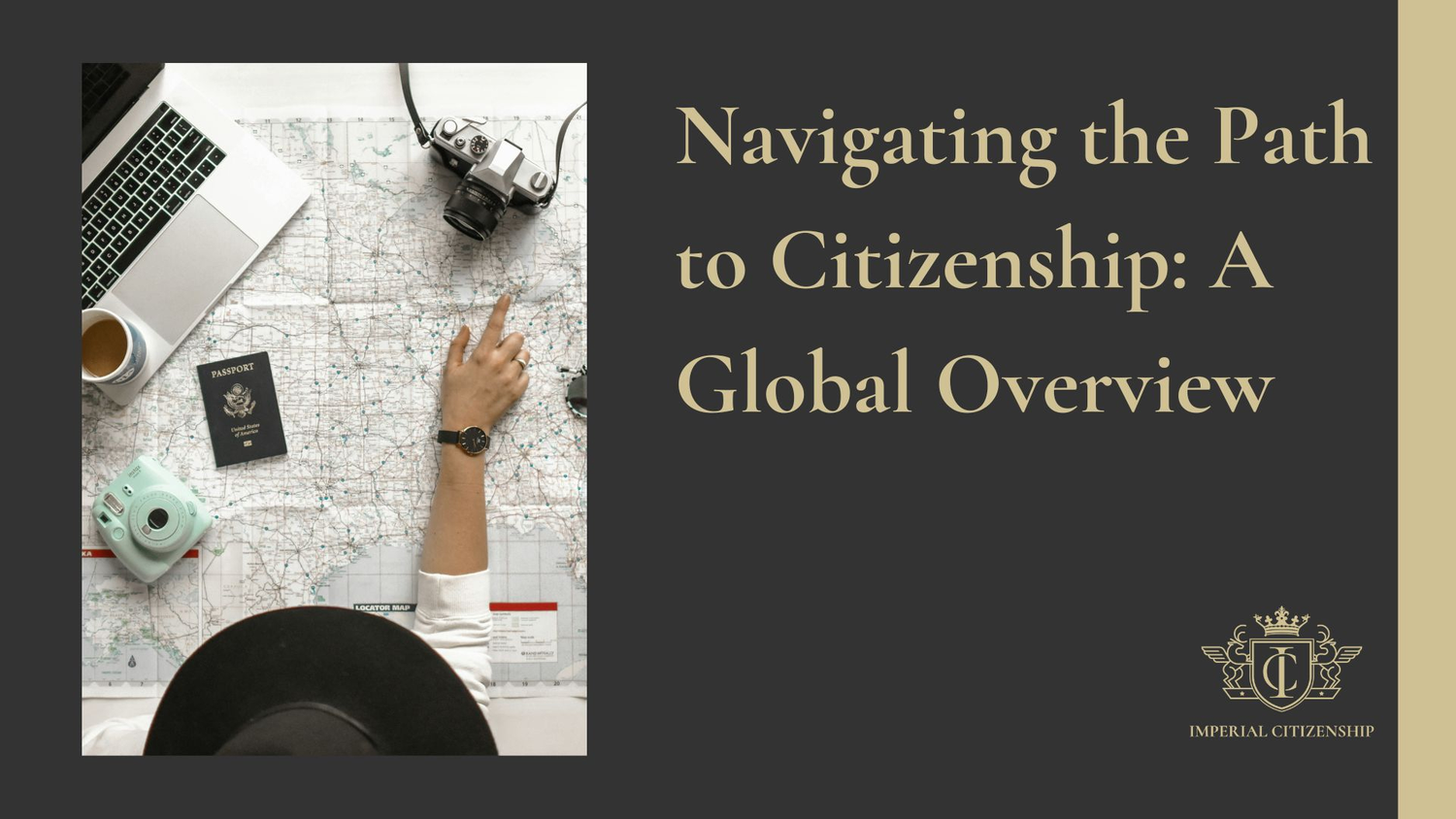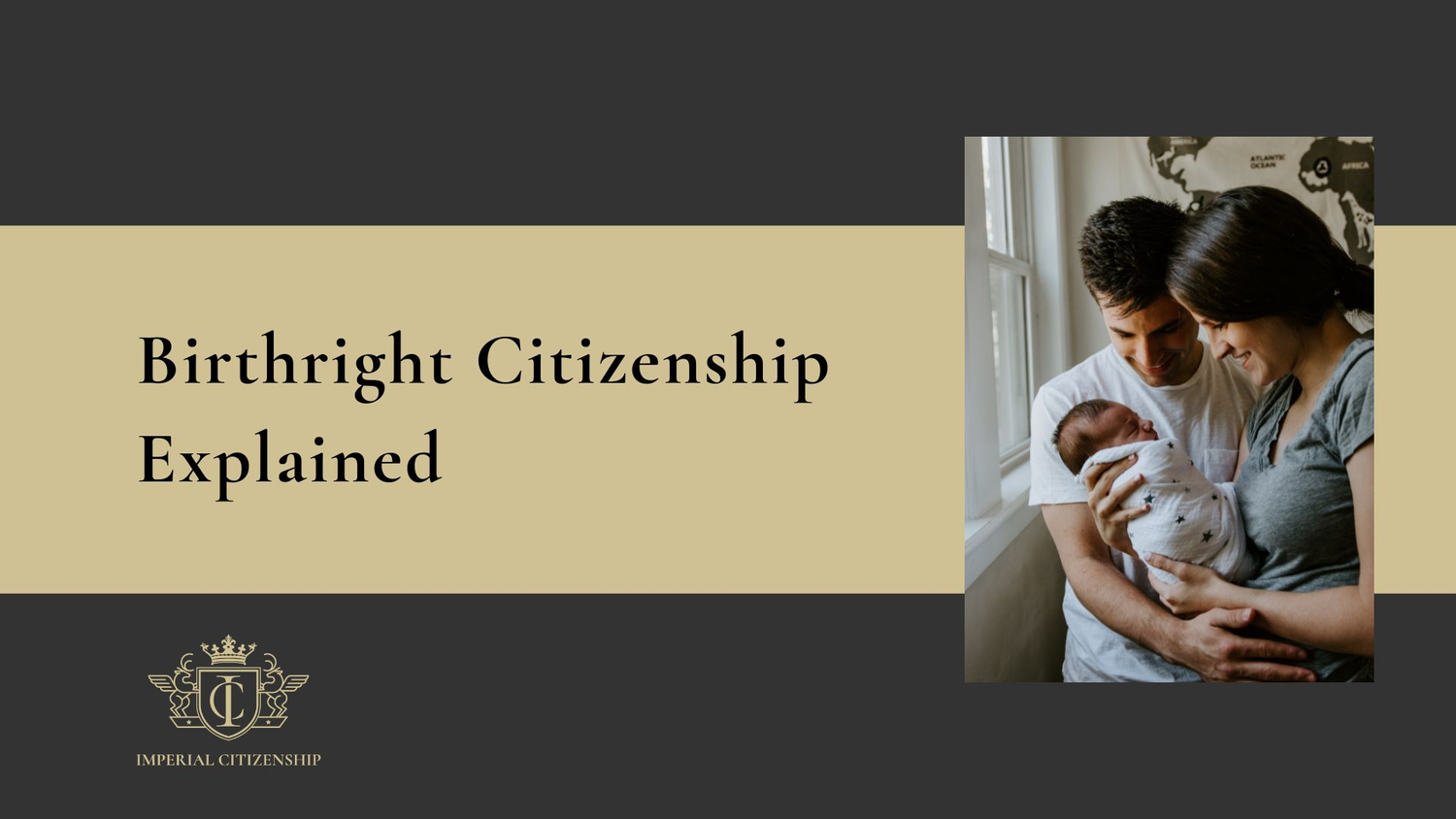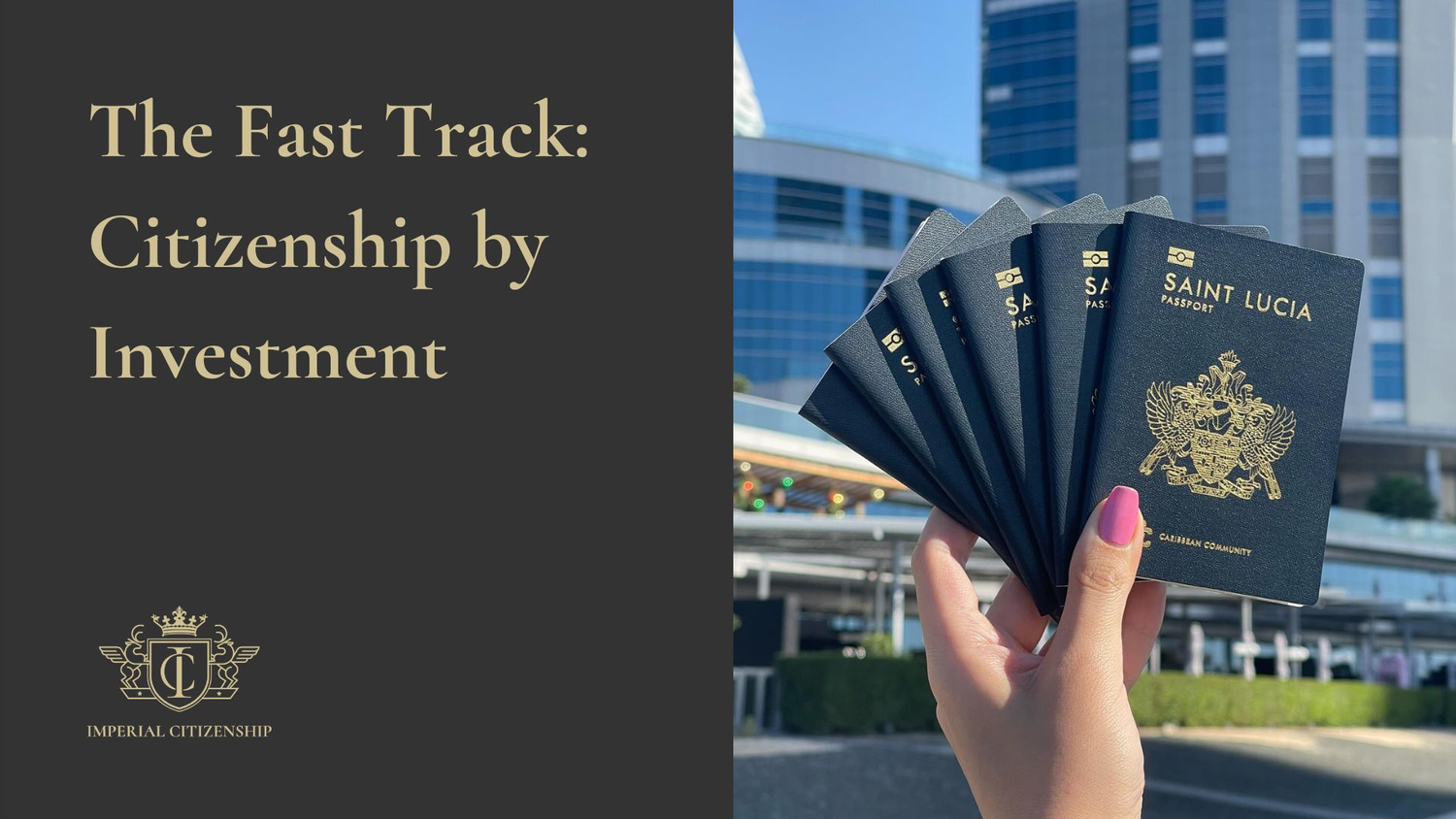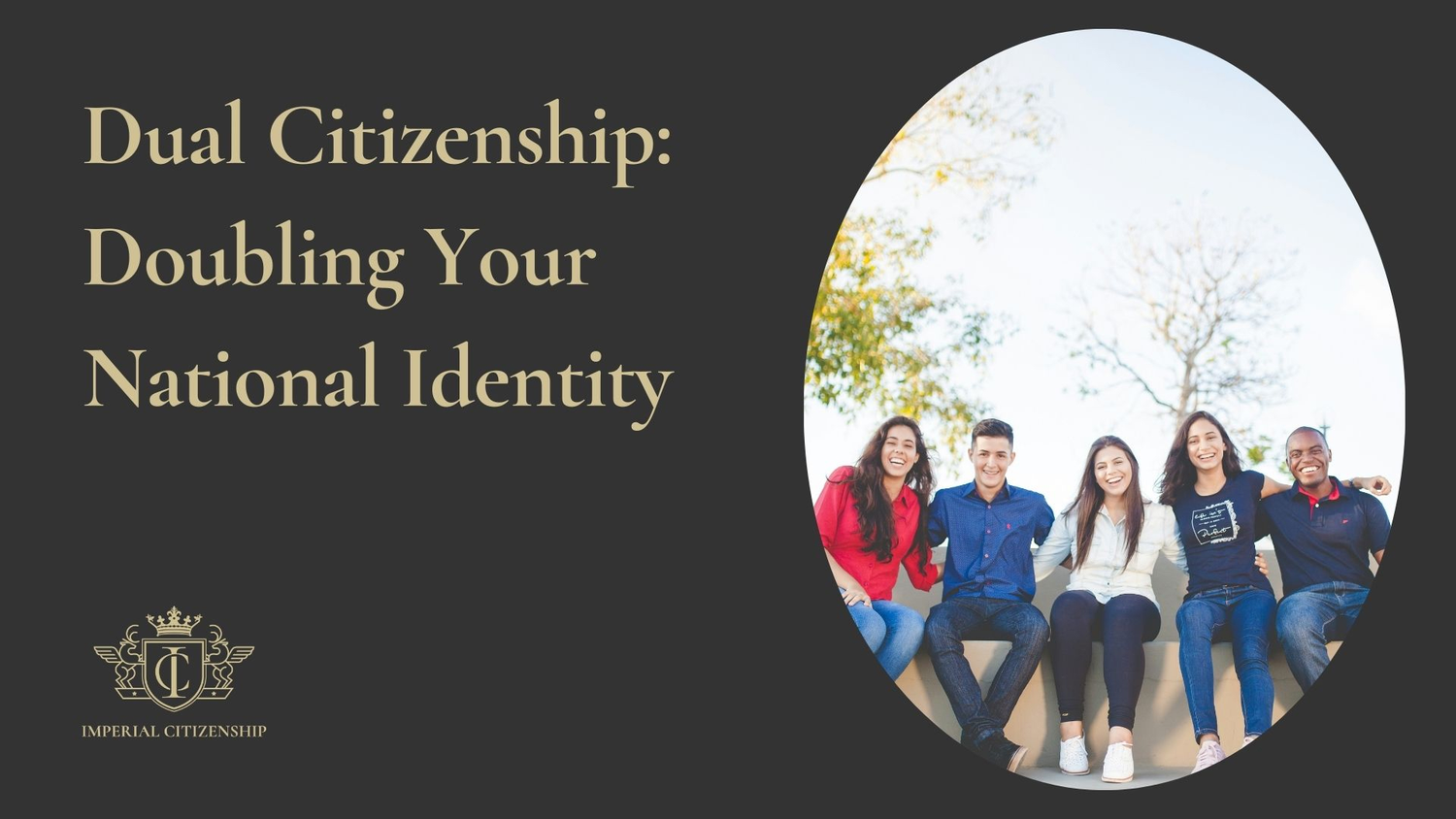Top Countries Where It’s Easy to Get Citizenship in 2024
- Key Takeaways
- Navigating the Path to Citizenship: A Global Overview
- The Fast Track: Citizenship by Investment
- Caribbean Havens: Investment for Citizenship
- European Accelerated Programs
- Shortest Routes to Naturalization
- Dual Citizenship: Doubling Your National Identity
- Securing Your Future: Citizenship for Retirement
- Citizenship by Descent: Reclaiming Roots
- Challenging Journeys: Countries With More Complex Citizenship Processes
- Building a Passport Portfolio: Multiple Citizenship Strategies
- Citizenship Considerations: Taxes, Military Service, and Other Obligations
- Summary
- Frequently Asked Questions

Looking for countries where it’s easy to get citizenship? This article will guide you through nations that offer the most approachable citizenship processes. Whether through investment, marriage, or family heritage, we’ll provide you with the essentials on where and how to secure a second passport efficiently.
Key Takeaways
- Numerous pathways to citizenship exist including birthright, descent, marriage, and investment, each with its own specific criteria, advantages, and challenges.
- Citizenship by investment programs are growing in popularity, offering expedited citizenship in exchange for substantial financial contributions, with varied options particularly in the Caribbean and Europe.
- Dual citizenship is gaining acceptance in many countries, allowing individuals to enjoy benefits and assume responsibilities in more than one nation, although not without potential tax and other legal complexities.
Navigating the Path to Citizenship: A Global Overview

In the grand tapestry of global citizenship, myriad threads weave together to form the intricate pathways leading to citizenship. From birthright citizenship, which roots identity in the land of birth, to citizenship by descent, where blood ties bind individuals to their ancestors’ homeland, the routes to citizenship are as diverse as they are distinct.
Yet, the journey does not end here. Marriage, a union of hearts and lives, can also serve as a bridge to a partner’s homeland, offering a unique pathway to citizenship. Alternatively, the road to citizenship may be paved with gold, through substantial financial contributions to a country’s economy via citizenship by investment programs. However, these pathways often necessitate a deep understanding of legal stipulations, eligibility criteria, and a steadfast commitment to the process.
Birthright Citizenship Explained
Imagine being bestowed with citizenship simply by virtue of being born within a country’s territorial bounds. Birthright citizenship, or jus soli, embraces this very idea. Rooted in the soil of one’s birth, this principle of nationality law confers citizenship upon individuals regardless of their parents’ nationality, often leading to a permanent resident status.
Consider Canada, where anyone born on Canadian soil automatically becomes a citizen, a reflection of the country’s jus soli policy. Similarly, in St. Lucia, being born within the country’s territorial limits entitles one to citizenship, although the journey may sometimes involve obtaining a residence permit before full citizenship is granted. These instances highlight the intriguing dynamics of birthright citizenship and the role of geographical birthright in shaping national identity.

Descent into Citizenship

While the principle of jus soli anchors citizenship in the soil, the concept of jus sanguinis, or “right of blood,” anchors it in lineage. This principle of citizenship by descent confers nationality based on the nationality of one or both parents, underscoring the powerful link between blood ties and national identity.
In Hungary, for instance, the principle of jus sanguinis is manifested in the country’s citizenship law, which allows individuals with a Hungarian parent to claim Hungarian citizenship. Poland, on the other hand, extends this privilege to individuals who can demonstrate a direct lineage to a Polish citizen, be it a parent, grandparent, or even a great-grandparent. In Lithuania, the right of blood principle takes precedence, ensuring that children inherit the citizenship status of their parents.
However, the path to citizenship by descent is fraught with challenges such as strict eligibility criteria, potential dual citizenship limitations, and the need for accurate documentation to prove descent.
Marriage as a Gateway
Marriage can indeed serve as a gateway to citizenship, intertwining personal and political aspects in a unique way. Many countries offer the possibility of acquiring citizenship through marriage to one of their nationals. However, this process typically involves specific rules and requirements and is not usually immediate. The process of obtaining citizenship through marriage generally requires the applicant to demonstrate the genuineness of the marriage. This often involves providing evidence such as shared living arrangements, joint finances, or children. The duration of the marriage before eligibility for citizenship can vary by country, with some requiring several years of marriage.
Additionally, the applicant usually needs to meet other criteria, such as language proficiency, knowledge of the country’s culture and legal system, and a clean criminal record. These requirements are in place to ensure that the marriage is not solely for the purpose of obtaining citizenship. It’s also important to note that the laws regarding citizenship through marriage can change, and the process can be complex. Therefore, it’s advisable for those considering this pathway to citizenship to consult with legal experts or immigration advisors. They can provide up-to-date information and guidance on the specific requirements and process in the relevant country.
The Fast Track: Citizenship by Investment
Citizenship by investment offers a speedy route for those eager to expedite their journey to citizenship. This process allows individuals to acquire a second citizenship and passport by making substantial financial contributions to the host country’s economy through an investment program.
This pathway is not only lucrative for the individuals seeking citizenship but also for the host countries, which often benefit from significant economic inflows. From the Caribbean islands of Antigua and Barbuda to the European nations of Austria and Malta, a host of countries offer citizenship by investment programs, attracting global citizens with the promise of expedited citizenship.

For instance, in Grenada, applicants must have a clean criminal record, be in good health, and be able to verify the legitimacy of their income. Additionally, they must make a significant financial contribution to the nation or purchase a government-sanctioned real estate asset. Similarly, in Turkey, applicants must obtain real estate worth at least USD 400,000 and make a minimum investment of USD 500,000 in fixed capital.
Caribbean Havens: Investment for Citizenship

The Caribbean region is renowned for its Citizenship by Investment (CBI) programs, offering a blend of natural beauty and investment opportunities. These programs provide various pathways to citizenship, each tailored to different investment preferences.
- Antigua and Barbuda: Known for one of the most affordable programs for big families, this country offers citizenship within 6-9 months with a minimum investment of $130,000.. The country provides visa-free access to 151 countries, making it a prime choice for global mobility.
- Dominica: Unique for its visa-free access to China, Dominica’s program requires a minimum investment of $100,000 and processes citizenship within 6-9 months. This program is particularly appealing for its affordability and the extensive travel freedom it offers.
- Grenada: Notable for offering visa-free access to China and potential residency through the E2 treaty agreement with the USA. With a minimum investment of $150,000, Grenada’s program processes citizenship within 6-9 months and grants access to 147 countries.
- St. Kitts and Nevis: As the founding CBI program, established in 1984, it requires a minimum investment of $250,000 and offers visa-free access to 155 countries. The program’s processing time is also 6-9 months.
- St. Lucia: One of the most affordable CBI programs currently available, St. Lucia requires a minimum investment of $100,000 and offers visa-free access to 147 countries. The citizenship processing time is between 6-9 months.
These Caribbean CBI programs are more than just a route to a second passport; they offer a gateway to a multitude of benefits, including extensive visa-free travel and investment opportunities in some of the world’s most beautiful locations. With minimum investments starting as low as $100,000 in Dominica, the Caribbean stands as a haven for those seeking citizenship through investment.
European Accelerated Programs
Europe, with its rich history, diverse cultures, and robust economies, offers an array of accelerated citizenship and immigration programs. These programs provide a swift route to citizenship through various means, such as investment and residency.

For example, Malta’s program in the Mediterranean is particularly notable. It offers citizenship through a combination of a single donation to the government, an investment or rental in real estate, and a charitable donation. This comprehensive approach not only supports Malta’s economic development but also provides investors with the opportunity to live, work, and study anywhere in the European Union. On the other hand, Turkey’s approach to citizenship by investment is centered around real estate acquisition or banking investments. With a minimum real estate investment of $400,000 USD or a bank deposit of $500,000 USD for a duration of three years, investors can gain Turkish citizenship. This program is especially attractive due to its relatively low investment threshold and the benefits it offers.
These accelerated European programs are not just about obtaining a second passport; they offer significant travel benefits as well. For instance, Turkish citizenship provides visa-free travel to 116 countries, enhancing the investor’s global mobility. Similarly, Maltese citizenship allows visa-free travel to over 189 countries, including major destinations like the USA, Canada, and the UK.
Shortest Routes to Naturalization
For those who have firmly planted their roots in a foreign land, naturalization offers a pathway to gain citizenship. This process involves a foreign citizen becoming a naturalized citizen after meeting certain requirements, such as a minimum period of residency and good moral conduct.
While the process of naturalization can often be long and complex, certain countries have established accelerated programs, offering shorter routes to citizenship. Countries like Argentina and Vanuatu, for example, boast speedy naturalization processes, often completed within one to two years.
Yet, even as we explore these shorter routes, it is crucial to remember that the journey to citizenship is not a race, but a process of forging an enduring bond with a new homeland.
Dual Citizenship: Doubling Your National Identity
The concept of dual citizenship is increasingly embraced by various countries around the world, offering individuals the opportunity to enjoy the benefits and privileges of citizenship in more than one nation. While the specific list of countries that allow dual citizenship is subject to change and depends on individual national laws, many nations have recognized the value of permitting their citizens to hold multiple nationalities.
Countries that typically allow dual citizenship include many in the Caribbean, such as St. Kitts and Nevis, Grenada, and St. Lucia, where Citizenship by Investment programs are popular. European countries like Malta and Turkey also permit dual citizenship, especially for investors who contribute to their economies through these programs.

In these countries, dual citizenship allows individuals to maintain their original nationality while enjoying the benefits of citizenship in another country. This can include the right to live, work, and study in the new country, participate in its political process, and access social services and healthcare. It also offers the convenience of visa-free travel to various destinations, depending on the passport’s strength.
Benefits and Responsibilities of Dual Citizens
Dual citizenship is akin to having the best of both worlds, offering a wealth of benefits, including:
- Expanded travel opportunities
- The capacity to immerse in and reap the benefits of two distinct cultures
- The provision of social benefits and services in both nations
- The ability to own property and do business in both countries
- The option to vote and participate in political processes in both countries
Dual citizenship can offer a myriad of opportunities.
Yet, like all privileges, dual citizenship comes with its share of responsibilities. From fulfilling tax obligations to serving in the military when called upon, dual citizens must navigate the laws and responsibilities of two nations. As such, prospective dual citizens must approach this path with a clear understanding of the intertwined benefits and responsibilities awaiting them.
Countries Welcoming Dual Nationals
While some countries remain apprehensive about dual citizenship, others have embraced this concept, welcoming dual nationals with open arms. The European nations of Portugal, Spain, and Malta, for instance, are known for their accommodating stance toward dual citizenship.
Malta, in particular, supports dual citizenship by allowing individuals the freedom to relocate to Italy or anywhere in the European Union and promoting the integration of foreigners through amendments to its laws. However, it is important to note that while these countries welcome dual citizens, the journey to dual citizenship may involve navigating stringent eligibility criteria, limitations on dual citizenship, and providing precise documentation to establish descent.
Securing Your Future: Citizenship for Retirement

Retirement signifies a major life shift, a time commonly linked with peace, rest, and the pursuit of long-held dreams. For many, this phase also sparks the desire to explore new horizons, including acquiring citizenship in a new country.
Certain countries offer easy citizenship processes for retirees, providing a seamless transition to a new life chapter. For instance, Dominica offer inviting environments for retirees, with simplified citizenship procedures and an attractive lifestyle proposition. Yet, as with any major life decision, acquiring citizenship post-retirement requires due diligence and a thorough understanding of the associated legalities and obligations.
Retirement-Friendly Residency Visas
For retirees looking to spend their golden years basking in the warmth of a new country, retirement-friendly residency visas offer an ideal solution. These visas are specifically designed to cater to the needs and aspirations of retirees, paving the way for a smooth transition to their chosen country. For example, Spain offer residency visas for retirees, each with their specific financial prerequisites.
However, as with any major life decision, acquiring citizenship post-retirement requires careful consideration. It’s important to conduct due diligence and fully understand the legalities and obligations associated with citizenship in a new country. This includes understanding residency requirements, tax implications, and access to healthcare and other social services.
Transitioning to Citizenship Post-Retirement
Although obtaining a retirement-friendly residency visa is a major accomplishment, the journey extends beyond this. For many retirees, the ultimate goal is to obtain permanent residency and eventually transition from residency to citizenship in their chosen country, often through acquiring a permanent residence permit.
The process of transition usually involves meeting certain criteria such as a minimum period of legal residence and demonstrating ties to the country. Retirees contemplating this move should be mindful of the financial implications that come with transitioning from residency to citizenship, including changes in tax residency and potential capital gains tax consequences.
Citizenship by Descent: Reclaiming Roots

The path to citizenship often requires a thorough exploration of one’s ancestry, tracing back ancestral roots and connections. Citizenship by descent offers a unique pathway to citizenship, allowing individuals to reclaim their ancestral heritage through citizenship. However, asserting citizenship by descent often involves navigating stringent eligibility criteria and providing precise documentation to establish descent.
Tracing Ancestry for Citizenship Claims
Establishing a claim to citizenship by descent often necessitates a journey back in time, tracing one’s ancestry and establishing a connection with forebears. This process involves collecting evidence of lineage, such as birth certificates and marriage records, and authenticating these claims through various methods, including certified copies of vital events and, occasionally, DNA testing.
While establishing a claim to citizenship by descent can be a complex process, utilizing ancestry databases like AncestryDNA and 23andMe can prove invaluable in verifying lineage. However, it is worth noting that tracing ancestry for citizenship claims can involve navigating complex regulations and overcoming potential ethical dilemmas associated with DNA testing.
The Impact of Family History on Citizenship Eligibility
Family history can significantly impact eligibility for citizenship by descent. This pathway to citizenship allows individuals to connect with their roots, asserting a claim to citizenship based on their familial ties to a specific country. This interplay between family history and citizenship is evident in countries like Austria and Greece, which offer citizenship based on family history, each with specific eligibility criteria.
Italy, for instance, allows individuals to claim citizenship if they can prove their lineage to an Italian citizen, be it a parent, grandparent, or even a great-grandparent. Thus, family history and lineage become pivotal in shaping one’s journey to citizenship by descent, reiterating the profound influence of the past on the present and future.
Challenging Journeys: Countries With More Complex Citizenship Processes
While the path to citizenship carries its share of challenges and complexities, some countries have notably complex procedures. These countries have stringent regulations and eligibility criteria, often making the path to citizenship a daunting endeavor.
The Vatican and China, for instance, exemplify such complex processes. In the Vatican, citizenship is primarily conferred upon individuals residing and employed within the state, such as Cardinals and Holy See officials. In contrast, acquiring Chinese citizenship, while uncomplicated in theory, can prove challenging due to the government’s discerning nature.
Hence, while the journey to citizenship in these countries can be challenging, it underscores the unique tapestry of citizenship laws and procedures across the globe.
Building a Passport Portfolio: Multiple Citizenship Strategies
In this age of global mobility, the concept of possessing multiple citizenships has become increasingly popular. Building a diverse passport portfolio not only enhances global mobility but also offers a host of benefits ranging from expanded travel opportunities to access to diverse cultures and economies.
However, acquiring multiple citizenships is not without its challenges. From navigating complex tax situations to understanding and fulfilling the obligations of each country, the journey to multiple citizenships requires meticulous planning and a thorough understanding of the legalities involved.

Despite these challenges, the pursuit of multiple citizenships can be immensely rewarding. It offers the freedom to live, work, study, and own property in various countries, providing a level of flexibility and security that is highly valued in today’s globalized world. For many, the ability to connect with different cultures, access various healthcare and education systems, and enjoy a lifestyle of choice in multiple countries is a compelling reason to embark on this journey.
Citizenship Considerations: Taxes, Military Service, and Other Obligations
Although the path to citizenship can be fulfilling, it comes with numerous responsibilities. From paying taxes to fulfilling military service duties, citizenship brings with it a range of obligations that vary from country to country.
The obligation to pay taxes is a common responsibility for citizens of most countries. In addition to tax obligations, certain countries also have compulsory military service, which can significantly impact the decision to acquire citizenship in these countries. Thus, while seeking citizenship in a new country can offer myriad benefits, it is crucial to understand and consider the various obligations that come with it.
Summary
From birthright citizenship and marriage to investment and descent, the journey to citizenship is as diverse as it is profound. Whether you’re seeking to embrace your ancestral roots, expand your global mobility, or secure your retirement, understanding the various pathways to citizenship can empower you to make informed decisions. While the journey may be fraught with challenges and complexities, the rewards of belonging, opportunity, and global connectivity make it a journey worth embarking on.
Frequently Asked Questions
Which is the easiest citizenship to get?
Citizenship can be obtained through investment programs in countries such as Antigua and Barbuda, Dominica, St. Kitts and Nevis, and St. Lucia. Some European countries, such as Turkey and Malta, also offer citizenship through investment programs.
Which citizenship is best?
The best citizenship varies based on individual needs and preferences. However, considering factors like economic opportunities, quality of life, and travel freedom, countries like Malta, Australia, and St. Kitts and Nevis are often ranked among the top citizenships to have.
What are the different pathways to obtaining citizenship?
You can obtain citizenship through birthright, descent, marriage, investment, or naturalization. These are the different pathways available for obtaining citizenship.
What are some of the retirement-friendly countries for obtaining citizenship?
Retirement-friendly countries for obtaining citizenship include Dominica, Vanuatu and Austria, which offer easy processes and a welcoming environment for retirees.
